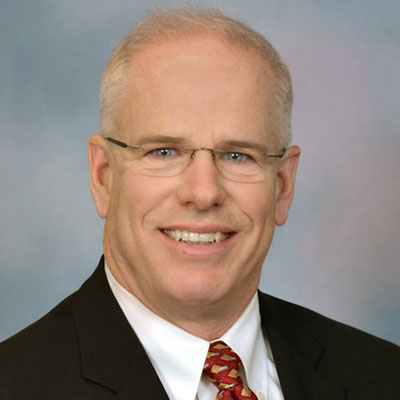Five Companies To Watch At The Jefferies Conference
Europe’s Biggest Investor Meeting
Executive Summary
Novartis and Roche will present alongside up-and-coming biotechs and microcaps.
The Jefferies conference in London is Europe’s biggest investor meeting, and this year hits its tenth anniversary.
Taking place this week over two days, 20-21 November, the conference is the most important event on this side of the Atlantic for biopharma companies big and small to impress existing investors and to seek out potential new licensing and M&A deals.
While it is dwarfed by the all-important JP Morgan pow-wow held every January in San Francisco (9,000 attendees, 450+ companies), the Jefferies event held every year in the Waldorf Hilton in central London plays host to a huge cross-section of the sector.
Around 500 companies and 2,000 attendees are expected to take part this year, from industry titans such as Novartis and Roche, to many international privately held biotech start-ups, mostly drawn from Europe and the US biotech hubs of San Diego and Boston, but with a growing contingent from China.
Here’s a run down of a few of the interesting companies and presentations being made.
1. Cardiovascular Game-Changer: Amarin
Amarin Corp. PLC looks set to gain US approval for its product Vascepa (icosapant ethyl) by the end of 2019 – and the fish-oil derived product could be a game changer in cardiovascular medicine.
An FDA committee recently recommended Vascepa for approval, and the company has just added to the drug’s impressive cardiovascular outcomes data with a new imaging study presented at the AHA congress.
The EVAPORATE study shows a daily four-milligram dose of Vascepa after statins saw the build up of plaque in study participants’ arteries slow down over a nine-month period. The data help to explain Vascepa's mechanism of action, and could persuade physicians to prescribe once its expanded label is approved.
The company’s stock has soared since it first unveiled cardiovascular data for Vascepa a year ago, and it now has a market capitalization of $8.1bn. This has not deterred rumors of a potential big pharma takeover move, with Pfizer Inc. mentioned frequently as a likely suitor.
For now, Amarin’s CEO John Thero is focused on securing FDA approval, and scaling up its commercial operations in the US and Europe. Thero is in London to present at Jefferies on 21 November, and is understood to be seeking a marketing partner for Europe – and should have no shortage of interest in a potential licensing deal. (Also see "Amarin Heads Into Vascepa Expansion Labeling Talks After Positive US FDA Panel Review" - Scrip, 15 Nov, 2019.)
2. Big Pharma Transforms: Novartis
2019 is shaping up to be a memorable year for Novartis AG, which has provided many of the industry’s most eye-catching headlines, good and bad, this year.
Among the many pluses, the company outperformed on revenues and earnings at the Q3 stage, and has enjoyed a bumper crop of US approvals – an industry best of six. (Also see "FDA Approval For Novartis’s Sickle Cell Treatment Adakveo" - Scrip, 18 Nov, 2019.)
One of those was the groundbreaking gene therapy for SMA, Zolgensma (onasemnogene abeparvovec), which was launched with the record-breaking price of $2.1m. While the company managed to convince many US payers this was in fact reasonable compared to existing therapy costs, a controversy has blown up around FDA claims that its gene therapy division AveXis had manipulated data used in the therapy’s filing.
Chief executive Vas Narasimhan will be presenting at the conference on 20 November, and will be keen to move on from the debacle, focusing instead on the ongoing digital transformation at the company and its focus on innovation in its pipeline.
There are also rumors swirling that Novartis could be preparing a bid for The Medicines Co. likely to cost around $6.5bn.
3. China’s Emerging Biopharma: Zai Lab
The development and maturing of China’s homegrown sector has continued apace in 2019, with a handful of companies aiming to become fully integrated biopharma companies with a global presence.
Zai Lab Ltd., headquartered in Shanghai, is among these firms, and took a step towards the big league with the approval of ovarian cancer treatment Zejula (niraparib) in China in June. Zejula is of course marketed by GlaxoSmithKline PLC (which acquired Tesaro Inc.) in the rest of the world, and recent results in frontline ovarian cancer treatment boosted its commercial firepower. (Also see "New Front Opens in First-Line Ovarian Cancer Market: GSK’s Zejula Vs. AZ’s Lynparza " - Scrip, 29 Sep, 2019.)
Chief financial officer Billy Cho will be presenting at Jefferies on Wednesday, and investors will be keen to hear how the company intends to maximise its penetration in its home market where AstraZeneca PLC’s rival PARP inhibitor Lynparza (olaparib) is already established. The company also has its own pipeline of novel cancer treatments, and will be looking to link up with European and US companies at Jefferies for possible China-based marketing alliances and licensing deals.
4. Opioid Crisis Fallout: Mallinckrodt
Amid the success stories, a number of the companies presenting at the conference are under financial stress. None more so than Mallinckrodt PLC which has been plunged into crisis this year as it faces potentially multi-billion lawsuits related to its role in the US opioid epidemic.
The company is now considering bankruptcy as a way out of its financial difficulties, as it is already carrying $5 billion in debt.
Purdue Pharma LP, marketer of OxyContin (oxycodone) and accused of being the greatest culprit in the fuelling of the opioid crisis, has already filed for Chapter II bankruptcy in the US, a move aimed at resolving the thousands of lawsuits filed against it.
The UK-headquartered firm saw its share price plummet in May when the state of Pennsylvania launched its legal action against Purdue; Teva Pharmaceutical Industries Ltd. and Endo Pharmaceuticals Inc. are also in deep water financially because of their entanglement in the opioid crisis.
Mallinckrodt’s CEO Mark Trudeau and CFO Bryan Reasons, who will be presenting at Jefferies, are nevertheless looking to steer the company out of trouble.
The company’s strategy is to expand its novel drug pipeline, spin out its specialty generics business, maximize the value of its existing portfolio and cut its debt.
Whether or not the company has enough time or investor patience to achieve this turnaround is uncertain. Also, there has been controversy about the generous retention bonuses totalling $4.2m awarded to its top executives, including a $1.5m sum for Mark Trudeau.
5. Alzheimer’s Next Chapter: Alector
This year has seen another set of deeply disappointing failures in Alzheimer’s drug development – with the surprise back-from-the-dead reappearance of Biogen Inc.’s aducanumab in October adding a twist to the amyloid-targeting tale.
Alector Inc. is a company which is trying to make a clean break from the failures of the many amyloid-targeting drugs in Alzheimer’s disease. Its approach is to target the brain's immune system. Data from Alector shows the immune system itself can play a role in neurodegeneration, and the firm wants to target the genes implicated in that process.
AbbVie Inc. paid $205m and made a $20m equity investment in 2017 to collaborate with Alector to generate new Alzheimer's drugs, and in February this year, the company raised a further $176m via an IPO.
The partnership’s lead candidates AL002 and AL003 entered clinical trials in Alzheimer’s earlier this year, focusing on safety in healthy volunteers, with data expected in early 2020.
Investors will be keen to hear more details about its drug mechanisms. AL002 targets a triggering receptor expressed on myeloid cells 2 (TREM2) with strong genetic linkage to Alzheimer’s disease and other neurodegenerative disorders, while AL003 blocks the function of SIGLEC 3, an inhibitory receptor on the microglia. The company says that conceptually this acts in a similar way to PD1 inhibitors in oncology, which block the function of an inhibitory receptor on T cells.
Trial design, in the light of controversy around aducanumab, will also be under close scrutiny, as will plans for potential scenarios for results and routes to market.
A third lead candidate, AL001 is being evaluated as a treatment people with frontotemporal dementia (FTD) with specific genetic mutations, including the granulin gene (FTD-GRN), and has entered Phase II trials.


